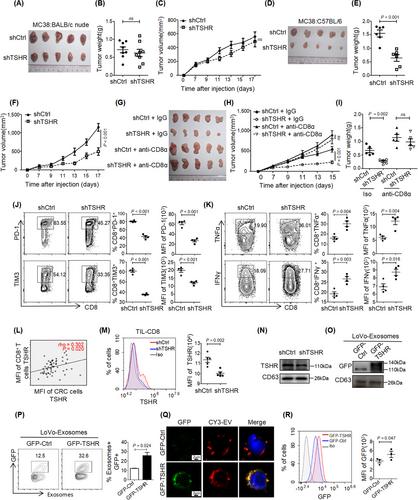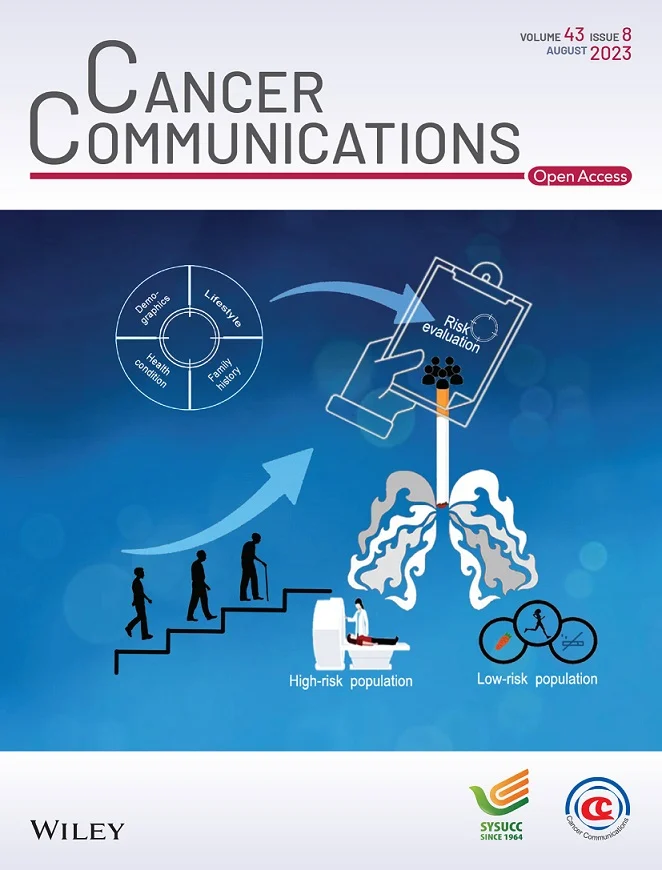Local TSH/TSHR signaling promotes CD8+ T cell exhaustion and immune evasion in colorectal carcinoma
Abstract
Background
Dysfunction of CD8+ T cells in the tumor microenvironment (TME) contributes to tumor immune escape and immunotherapy tolerance. The effects of hormones such as leptin, steroid hormones, and glucocorticoids on T cell function have been reported previously. However, the mechanism underlying thyroid-stimulating hormone (TSH)/thyroid-stimulating hormone receptor (TSHR) signaling in CD8+ T cell exhaustion and tumor immune evasion remain poorly understood. This study was aimed at investigating the effects of TSH/TSHR signaling on the function of CD8+ T cells and immune evasion in colorectal cancer (CRC).
Methods
TSHR expression levels in CD8+ T cells were assessed with immunofluorescence and flow cytometry. Functional investigations involved manipulation of TSHR expression in cellular and mouse models to study its role in CD8+ T cells. Mechanistic insights were mainly gained through RNA-sequencing, Western blotting, chromatin immunoprecipitation and luciferase activity assay. Immunofluorescence, flow cytometry and Western blotting were used to investigate the source of TSH and TSHR in CRC tissues.
Results
TSHR was highly expressed in cancer cells and CD8+ T cells in CRC tissues. TSH/TSHR signaling was identified as the intrinsic pathway promoting CD8+ T cell exhaustion. Conditional deletion of TSHR in CD8+ tumor-infiltrating lymphocytes (TILs) improved effector differentiation and suppressed the expression of immune checkpoint receptors such as programmed cell death 1 (PD-1) and hepatitis A virus cellular receptor 2 (HAVCR2 or TIM3) through the protein kinase A (PKA)/cAMP-response element binding protein (CREB) signaling pathway. CRC cells secreted TSHR via exosomes to increase the TSHR level in CD8+ T cells, resulting in immunosuppression in the TME. Myeloid-derived suppressor cells (MDSCs) was the main source of TSH within the TME. Low expression of TSHR in CRC was a predictor of immunotherapy response.
Conclusions
The present findings highlighted the role of endogenous TSH/TSHR signaling in CD8+ T cell exhaustion and immune evasion in CRC. TSHR may be suitable as a predictive and therapeutic biomarker in CRC immunotherapy.


 求助内容:
求助内容: 应助结果提醒方式:
应助结果提醒方式:


